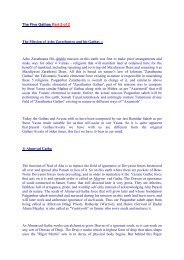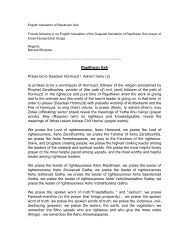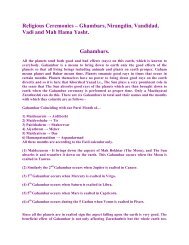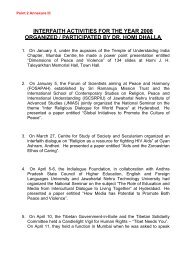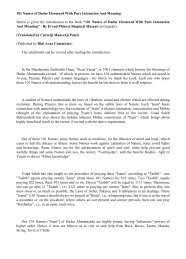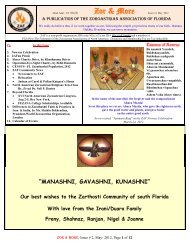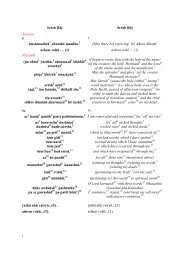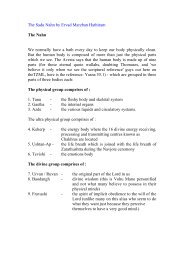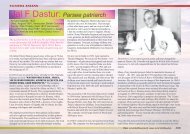Tata Consultancy Services
Tata Consultancy Services
Tata Consultancy Services
You also want an ePaper? Increase the reach of your titles
YUMPU automatically turns print PDFs into web optimized ePapers that Google loves.
Philosophy resides in How<br />
TCS‘s management philosophy is a blend of the rational attitude along with ―humanity‖,<br />
which aims at improving human society. These values are firmly entrenched in the<br />
organization. In the vision and style of TCS‘s top management, including Mr. F. C.<br />
Kohli, the emphasis on ―how‖, which flows throughout the <strong>Tata</strong> Group, is incorporated,<br />
along with powerful rationalism and behavioral abilities.<br />
According to Mr. JRD <strong>Tata</strong>, ―Nothing worthwhile is ever achieved without deep thought<br />
and hard work.‖ It may sound quite obvious, but it has a deep meaning. If we look at it<br />
from the perspective of <strong>Tata</strong>‘s traditional values, ―the things which are valuable‖ are not<br />
only those that bring profits for specific human beings, but those which contribute to the<br />
profits for the wide society, which are ethically correct and humane. In order to achieve<br />
this, we can interpret that, through ―deep thinking‖, we find a sensible method of a high<br />
level (comprehensive rationalism) and spare no efforts towards the goal based on the<br />
method.<br />
TCS has a self-checking system to evaluate whether its rational thinking or practice,<br />
obtained through continuous learning, is logically correct, comprehensively ―sensible‖,<br />
and thoughtful enough to care for others. In the underlying spirit, rather than saying<br />
―Do Good‖ by the fortune saved by fair means or foul, shape the ―good‖, in other words, a<br />
―Do good while being good‖ attitude can be seen. Mr. Kohli‘s idea was not just to train<br />
talented engineers, but, as stated earlier, his grand vision was to train ―managers‖ who<br />
can become ―consultants‖ by contributing towards society in a wide variety of areas by<br />
crossing the borders of the company. We can call this a love for human society. It looks<br />
like he also pursued thorough economic rationalism as an indispensable tool to achieve<br />
that purpose. We can even infer that, in his mind, there is no boundary between an<br />
―enterprise‖ and ―general society.‖<br />
Profile Noriya Sumihara<br />
Born in 1957. Ph.D. from New York University Graduate School<br />
Anthropology Department. Currently, Professor at the International<br />
Center for Regional Studies, Tenri University. Areas of specialization are<br />
Cultural Anthropology / Management Anthropology / Anthropology of<br />
Work. He has published a number of books on management philosophy,<br />
globalization, etc.<br />
34



